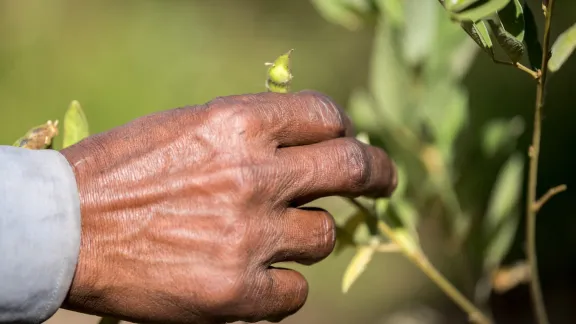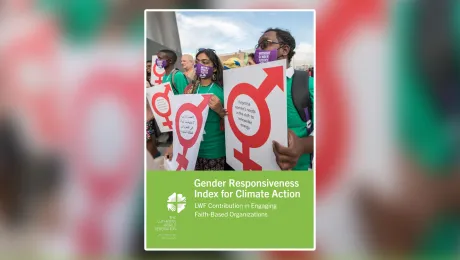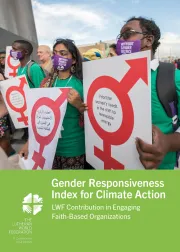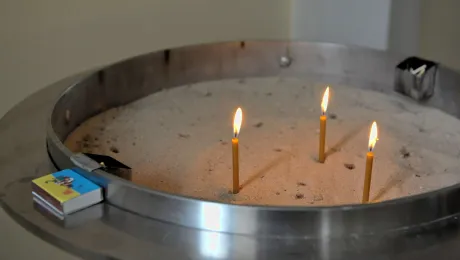
A brochure titled âThe critical role of faith actors in national climate debateâ published recently in English and Spanish explains the Nationally Determined Contributions (NDCs) which are part of the 2015 Paris Agreement on climate change and the contribution faith actors can make. Photo: LWF/Albin Hillert
2020 remains critical for making progress on climate change response
(LWI) - “We continue to advocate for commitments at the international level. At the same time, we affirm that the local ecological and social systems in which we live can contribute to just and sustainable solutions,” says Elena Cedillo, Program Executive for Climate Justice at The Lutheran World Federation (LWF). These should lead to economic, political and social transformation at local and national levels.
In the light of this, an LWF guide with the title “The critical role of faith actors in national climate debate” published recently in English and Spanish explains the Nationally Determined Contributions (NDCs), and the faith-based perspective that LWF member churches can contribute. The NDCs are part of the 2015 Paris Agreement on climate change.
“Churches and faith-based organizations are rooted in local communities, and have knowledge and experience that can translate into specific, actionable policies,” Cedillo explains. NDCs are particularly pertinent for faith actors because, together with civil society and other actors in the respective countries, they can participate in the relevant local and national processes.
The Paris Agreement’s implementation rests on three key pillars: National Adaptation Plans, Long-term Decarbonization Strategies, and NDCs. Additional vital aspects are climate finance, technology, capacity building, the transparency framework, and frameworks for international cooperation.
Rescheduling of climate conferences delay progress
The Coronavirus disease (COVID-19) pandemic has had a significant impact in the global environmental agenda: the 26th session of the Conference of the Parties (COP26) to the United Nations Framework Convention on Climate Change (UNFCCC) and other multilateral climate processes planned for 2020 were rescheduled to next year.
“As it stands, the process to submit new NDCs is delayed, and there is every reason to fear that the NDCs will not be ambitious enough to achieve the goals of the Paris Agreement,” says Cedillo. “The coming months, therefore, remain critical for making progress on climate policy and action.”
“As the focus shifts from international negotiations to determining national contributions, local faith actors can make a significant contribution and advocate for climate justice,” Cedillo is convinced. This pertains particularly to governments’ commitments to lower carbon emission and to keep global warming below 1.5°C.
“Rooted in the reality of local ecologies with access to leadership at the grassroots and national level, faith communities can ensure that NDCs offer just, sustainable, and contextually relevant solutions,” says Cedillo. The brochure is one helpful step in this direction.


